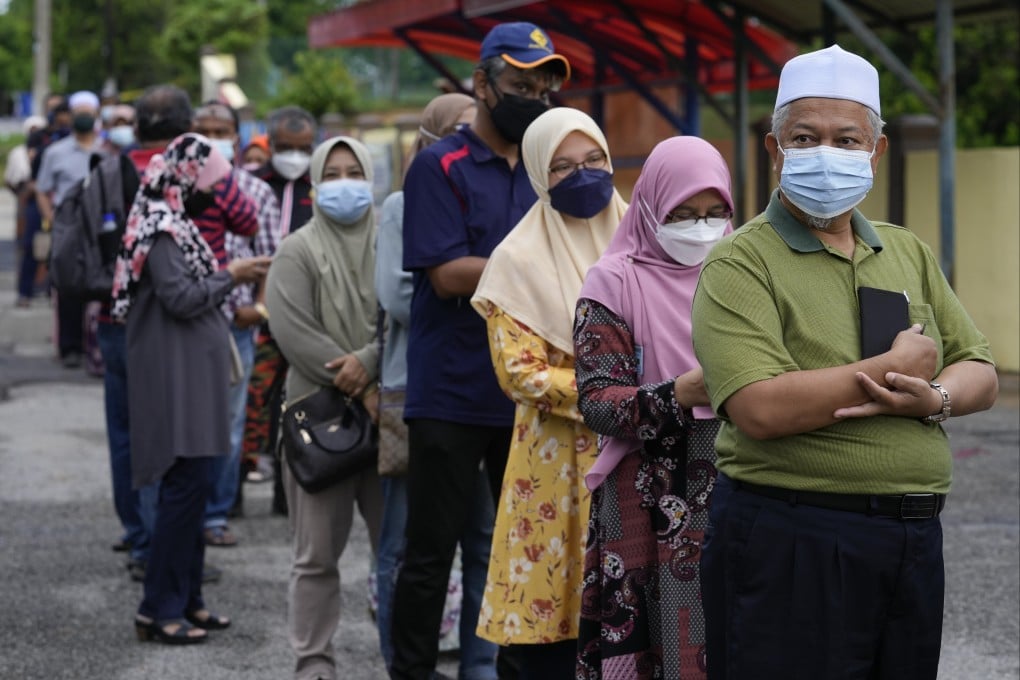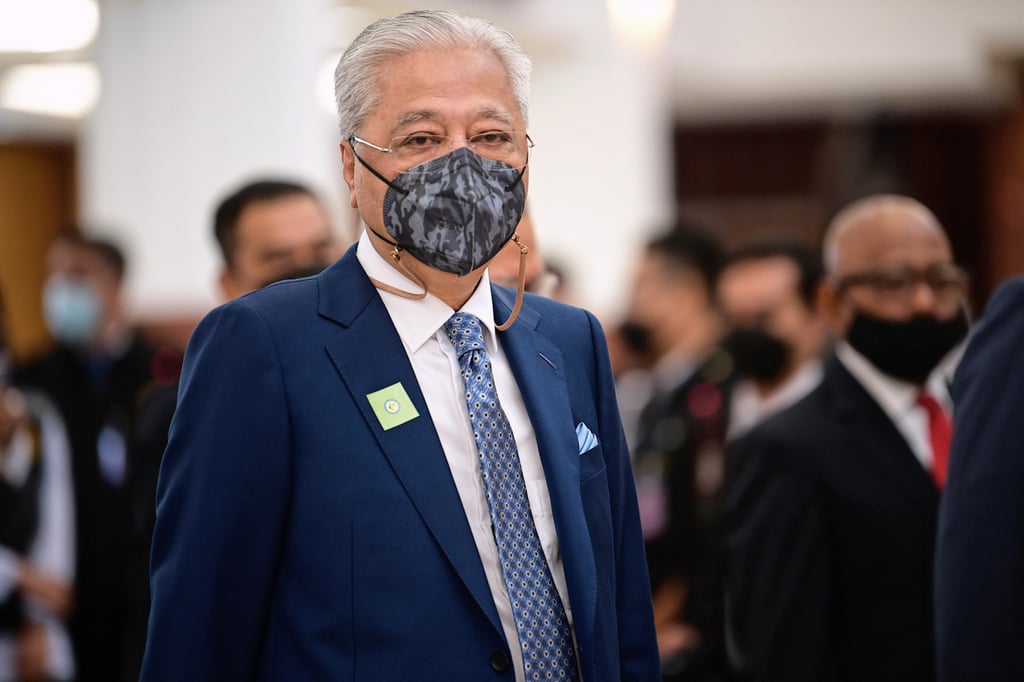Advertisement
Sarawak state polls expected to boost Malaysian Prime Minister Ismail Sabri Yaakob
- Gabungan Parti Sarawak projected to hold the state on December 18, thanks to ‘unlimited resources’ – including helicopters – that can help it reach rural voters
- Opposition led by Anwar Ibrahim is in disarray and may suffer from an undercurrent in the Chinese community against its coalition partner, the DAP
Reading Time:3 minutes
Why you can trust SCMP

The incumbent Gabungan Parti Sarawak (GPS) coalition is likely to retain control of Sarawak in state elections to be held on December 18, analysts believe, in what would be a boost for Malaysian Prime Minister Ismail Sabri Yaakob.
The coalition is an ally of the federal government headed by Ismail Sabri, and is expected to comfortably beat the opposition, led by Anwar Ibrahim, which is in disarray.
The Election Commission said that by the time nominations closed on Monday, 349 candidates had been registered to contest the 82 seats in the Sarawak state assembly on Borneo island. The state has 1.25 million registered voters.
Advertisement
The Sarawak polls were initially slated to be held earlier this year upon the expiry of the state legislature’s tenure in June, but were postponed due to a January-to-August nationwide emergency aimed at dealing with the Covid-19 crisis.
The impending vote is the second statewide election being held since Ismail Sabri assumed power in August. His ruling alliance staged a decisive victory in elections in the state of Melaka on November 20.

“GPS is likely to sweep most of the seats in Sarawak. This is mainly because over the years it has come to dominate almost every aspect of Sarawak’s polity and economy,” said Oh Ei Sun, senior fellow at the Singapore Institute of International Affairs.
Advertisement
Advertisement
Select Voice
Choose your listening speed
Get through articles 2x faster
1.25x
250 WPM
Slow
Average
Fast
1.25x